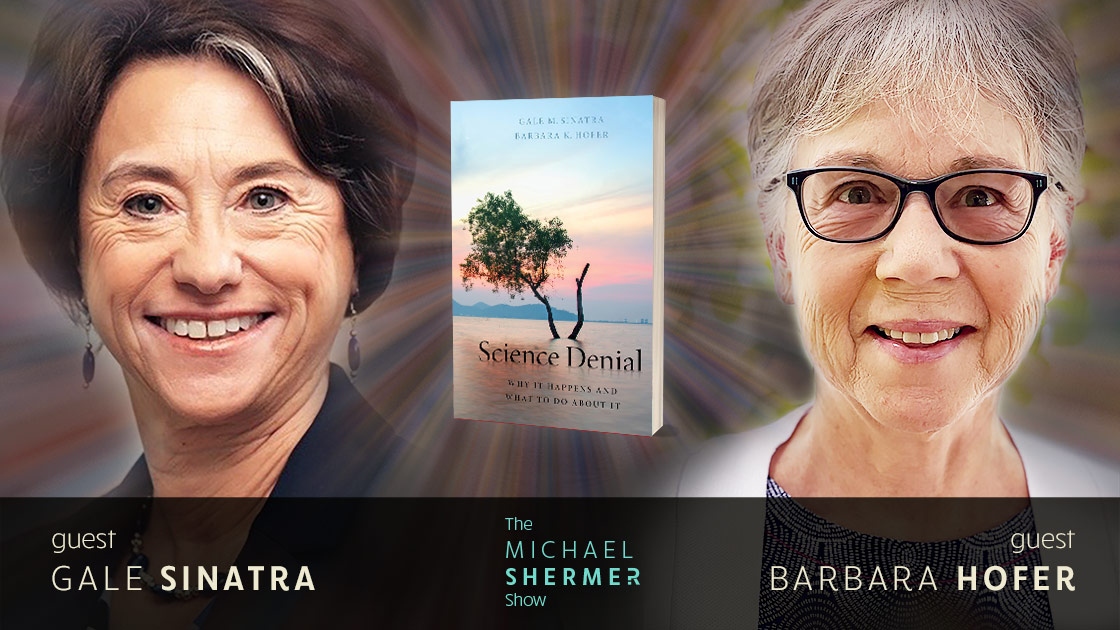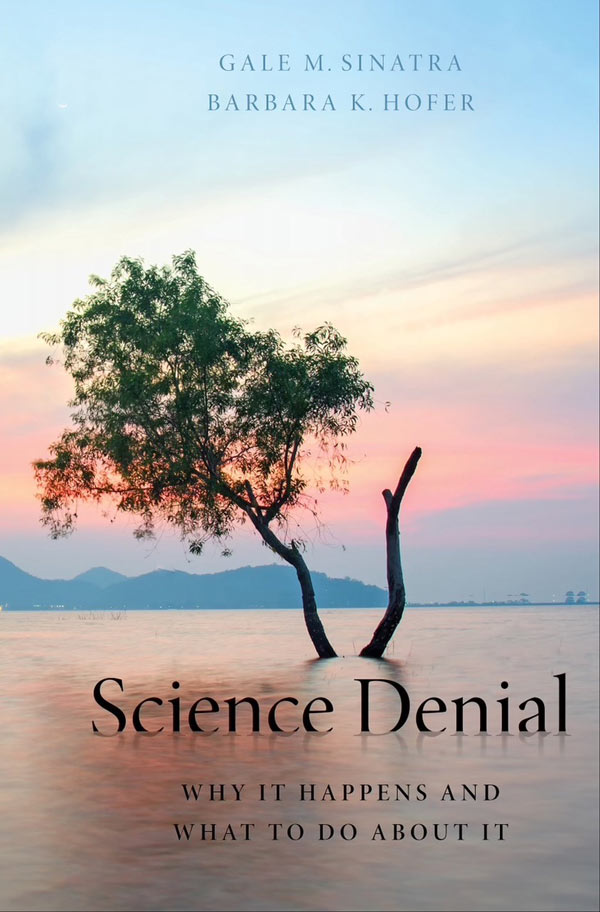How do individuals decide whether to accept human causes of climate change, vaccinate their children against childhood diseases, or practice social distancing during a pandemic? Democracies depend on educated citizens who can make informed decisions for the benefit of their health and well-being, as well as their communities, nations, and planet. Understanding key psychological explanations for science denial and doubt can help provide a means for improving scientific literacy and understanding — critically important at a time when denial has become deadly.
In this conversation based on their new book, Science Denial: Why It Happens and What to Do About It, Gale Sinatra and Barbara Hofer identify the problem and why it matters and offer tools for addressing it. They explain both the importance of science education and its limitations, show how science communicators may inadvertently contribute to the problem, and explain how the internet and social media foster misinformation and disinformation. The authors focus on key psychological constructs such as reasoning biases, social identity, epistemic cognition, and emotions and attitudes that limit or facilitate public understanding of science, and describe solutions for individuals, educators, science communicators, and policy makers. If you have ever wondered why science denial exists, want to know how to understand your own biases and those of others, and would like to address the problem, this book will provide the insights you are seeking.
Gale Sinatra is the Stephen H. Crocker Professor of Education and Psychology at the Rossier School of Education at the University of Southern California, where she directs the Motivated Change Research Lab. She received her B.S., M.S., and Ph.D. in psychology from the University of Massachusetts, Amherst. She has been recognized by the American Educational Research Association for career achievements in research with the Sylvia Scribner Award. She resides in Altadena, California.
Barbara Hofer is a Professor of Psychology Emerita at Middlebury College and is a Fellow of the American Psychological Association. She received her Ph.D. in psychology and education from the University of Michigan and an Ed.M. in human development from Harvard University. She is the recipient of national awards for both research and teaching, from the American Educational Research Association and the American Psychological Association. She lives in Middlebury, Vermont.
- Why should we believe Anthony Fauci?
- vaccine hesitancy, Hydroxochloroquine, Bret Weinstein and Ivermectin,
- climate science denial,
- evolution denial: from William Jennings Bryan to Intelligent Design creationists,
- ways of knowing: absolutism vs. multiplism vs. evaluativism,
- algorithmic literacy,
- types of truth: empirical, personal, political, religious, ideological,
- how to think about evidence,
- how to evaluate media sources of science,
- self identity and science denial,
- why no one in the history of the world has ever identified as a science denier,
- What is science, anyway?
- why knowing the facts of evolution, vaccines, climate science, GMOs, etc. is not enough,
- Is there a liberal science denialism?
- GMOs and science denial,
- conspiracy theories and science denial,
- how to engage eccentric Uncle Harry at the next family dinner when he declares climate change to be a Chinese hoax, or that vaccines are a conspiracy to control people, or that QAnon is a real conspiracy and the 2020 election was rigged.
-
Action steps:
- dealing with cognitive biases,
- supporting digital literacy,
- supporting science education,
- understanding beliefs about knowledge,
- understanding emotions and attitudes,
- understanding motivated reasoning.
If you enjoy the podcast, please show your support by making a $5 or $10 monthly donation.
This episode was released on September 25, 2021.










